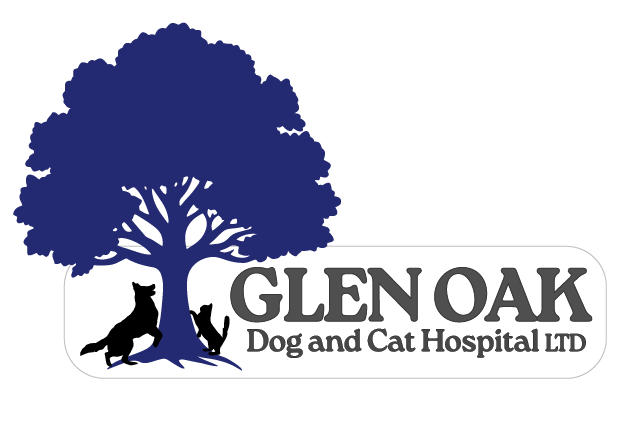More and more often, pet owners are wanting the absolute best for their pets. Whether it's the best food, best toys, or best veterinary care, today’s pet owners are willing to go to greater lengths to give their dogs and cats long and healthy lives.
With this growing investment in personalized and effective pet care, the demand for holistic veterinary care has been on the rise, especially among younger generations of pet owners. But unfortunately, there are a lot of misconceptions about holistic pet care options online and in pet owner communities. That’s why we’re going to break down the basics of holistic veterinary care, explain its uses and benefits, and dive into exactly why pet owners are making it a regular part of their pet’s care.
What Does “Holistic Veterinary Care” Actually Mean?
Holistic veterinary care can mean many different things for different clinics. In some cases, this means that they do not practice traditional western medicine. They focus on alternative modalities including but not limited to: acupuncture, spinal manipulation, herbal therapies, aromatherapy, homeopathy, laser therapy, ozone therapy, and rehabilitation and sports medicine.
Holistic care for dogs and cats is meant to be a wider approach to veterinary medicine, allowing veterinarians to use a variety of proven techniques – some more modern and some dating back thousands of years — to address all aspects of a pet’s health and well-being. Holistic health is based on the idea that the whole being is greater than the sum of its parts. Rather than just treating physical symptoms, holistic veterinary care takes a comprehensive approach — considering a pet’s body, mind, and overall well-being. Rooted in ancient healing traditions like Ayurveda and Traditional Chinese Medicine, holistic care has been practiced for millennia and is now gaining widespread recognition in the U.S. for both humans and their pets!
An Integrative Approach to Veterinary Medicine
A majority of practitioners that use alternative medicine also use traditional western medicine, viewing themselves as integrative practitioners. An integrative approach to veterinary care allows practitioners, to combine effective traditional treatments, like medication use and surgery, with natural approaches that promote an animal’s natural ability to heal and reduce pain and inflammation.
These integrative therapies are useful in almost all aspects of veterinary medicine. If a patient is not responding to a given therapy or if an owner wants to try a non-traditional approach they should contact an Integrative practitioner.
The Risks of Holistic Veterinary Care
A practitioner who is not properly trained can see poor or negative outcomes in their pets. The risks associated with traditional Western therapies are far greater than those with holistic or integrative therapies.
Before considering any type of holistic treatment for pets, pet parents should first of all make sure that they are only working with a veterinarian who is licensed to practice in their state. A list of verified holistic practitioners is available on AHVMA.org to help you find the right holistic veterinarian near you.
Why Pet Owners Are Embracing Holistic Veterinary Care
For many owners, pets are a part of the family – and that means providing them with the best care and quality of life possible. This dynamic shift in a pet’s role within the family from previous generations means pet owners are becoming more involved and educated about the care and treatments their dogs or cats are receiving. They are seeking out the best and most effective solutions to help their pets lead long and healthy lives.
With longevity and quality of life at the forefront of their thoughts, pet owners have increasingly sought out holistic treatments for their beloved pets. Research into the trend toward holistic pet care approaches has revealed that pet owner attitudes toward natural approaches to veterinary care are becoming increasingly positive as more owners become educated about the efficacy of holistic medicine. In fact, approximately 15% of the nearly 50,000 participants enrolled in the Dog Aging Project, a nationwide study of healthy aging in dogs, have participated in some sort of alternative healthcare practice in their dogs' lifespan.
The role of pets as primary family members and this apparent increase in the human-animal bond aren’t the only reason pet owners are more frequently seeking out holistic pet care options. The effectiveness and focus on pain relief of holistic/integrative pet care is a major draw for pet owners with injured and chronically ill dogs and cats.
While some pet owners may think of holistic veterinary medicine as “voodoo” or treatments not based in science, that couldn’t be further from the truth. Many research studies have been done on integrative therapies and have shown the benefits for pets from all walks of life. Many practitioners have had multiple patients live longer, with a higher quality of life through the use of integrative therapies. Almost all ailments have seen success with different alternative therapies.
.jpg)
Common Types of Holistic Veterinary Care
There are a number of natural treatments that can fall under the umbrella of holistic veterinary medicine, and there are veterinarians and researchers who specialize in each of them. A few of the most common types of holistic veterinary care that pet owners seek out include:
1. Acupuncture
Veterinary acupuncture is a key component of holistic care approaches that helps activate an animal’s natural healing abilities through stimulation of certain points across their body. The practice involves gently placing thin needles at specific points along energy pathways, referred to as meridians, which are believed to connect to different organs and systems within the body. Different types of acupuncture can be used depending on the pet’s needs; these forms of veterinary acupuncture can include:
- Dry needling
- Aqua-acupuncture
- Electro-stimulation
When performed by a skilled veterinarian, acupuncture for dogs and cats helps restore balance, improve circulation, and enhance overall well-being. It has proven to be an especially effective treatment for arthritis and nerve disorders, as well as a tool for post-surgical recovery and chronic pain management.
2. Chiropractic Care
Similar to what’s available to humans, there’s also chiropractic care for dogs and cats available as another aspect of holistic veterinary medicine. Chiropractic treatment focuses on keeping a pet’s musculoskeletal system in correct alignment for proper function. Because the nervous system plays a vital role in overall health, even small misalignments can impact mobility, comfort, and well-being.
To employ chiropractic care, a trained veterinarian will gently manipulate and adjust an animal's body to restore alignment – most typically in the spine – to improve nerve function, eliminate any pain or discomfort caused by misalignment, and support your pet’s natural ability to heal and regulate their body’s systems.
3. Herbal Medicine
Herbal medicine within pet care utilizes plant-based remedies to support healing and balance the body. This approach is often used for digestive issues, skin conditions, and chronic diseases.
However, when considering herbal treatments for dogs and cats, it is imperative that you work with a qualified practitioner, as many natural substances are toxic to pets and can do a lot more harm than good for a pet’s health.
.jpg)
4. Laser Therapy (Photobiomodulation Therapy)
Laser therapy is a gentle, non-invasive holistic treatment option that stimulates your pet’s body to heal from within. Using targeted light energy, this therapy boosts cellular metabolism, helping injured cells recover faster. In just a few minutes , laser therapy increases circulation, reduces inflammation, and provides effective pain relief—all without the need for medication.
Laser therapy for dogs and cats can provide almost immediate relief, with veterinarians seeing great success for using the therapy to treat a variety of conditions, including arthritis, wounds, surgical incisions, and soft tissue injuries.
5. Homeopathy
Homeopathy for pets is defined as the “treatment of disease with sometimes extreme dilutions of substances that in undiluted form might cause symptoms of that same disease.” This approach to veterinary medicine is based on the principle that “like cures like.”
Most commonly, homeopathy is used for treatment of allergies, anxiety, and chronic illnesses in dogs and cats.
6. Massage Therapy
Massages aren’t just for us humans after a hard week of work. Massage therapy for dogs and cats is an effective and natural approach to relieving tension, improving circulation, and enhancing overall mobility. The practice primarily involves rubbing, pressing, kneading, warming, and tapping a pet’s soft tissues to resolve pain-related issues.
While all pets can benefit from massage therapy, it is commonly used on senior pets to ease aches and pains from common health conditions associated with natural aging. It has also been proven to be effective for post-surgery pain relief and management of anxiety symptoms in pets.
7. Nutritional Therapy
Nutritional therapy focuses on using a pet’s diet to both prevent and address health concerns and illnesses. Holistic nutrition involves providing your pet with a balanced diet of essential vitamins, minerals, and amino acids to ensure all of their nutritional needs are met.
This approach can be especially beneficial for pets that struggle with allergies, weight management, and recurrent digestive issues.
If you have questions on any of these holistic treatments for dogs and cats and you'd like to reach out to us, you can call us directly at (276) 600-2631, or you can email us at [email protected]. Don't forget to follow us on social media Facebook, Instagram.

